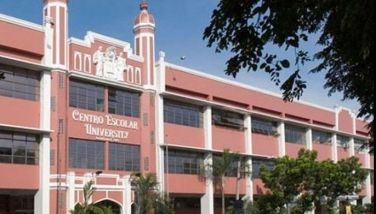EDITORIAL - Manila in the time of cholera
October 31, 2003 | 12:00am
 This disease was supposed to have been wiped out decades ago. Cholera, however, has once again struck in Metro Manila, killing four people so far. Malacañang calls it a diarrhea outbreak due to water poisoning; the water concessionaire calls it an outbreak of gastroenteritis. But the Department of Health goes for accuracy. And the DOH says cholera it is, a disease resulting from poor sanitation and water facilities.
This disease was supposed to have been wiped out decades ago. Cholera, however, has once again struck in Metro Manila, killing four people so far. Malacañang calls it a diarrhea outbreak due to water poisoning; the water concessionaire calls it an outbreak of gastroenteritis. But the Department of Health goes for accuracy. And the DOH says cholera it is, a disease resulting from poor sanitation and water facilities.
The outbreak was detected in Manila’s Tondo Foreshore Area, where many households still get their water from antiquated pipes. The concessionaire for the area, Maynilad Water Services Inc., pointed out that there are many illegal water connections and water pumps in that neighborhood.
This is the second time in recent years that a cholera outbreak was detected in the city. The disease was also reported in a fishing community in Mindanao a few years back. The emergence of a killer disease that was believed eradicated a long time ago should spur the government to improve management of the nation’s water resources.
Such outbreaks are no longer surprising. In the third millennium, it’s still unsafe to drink water straight from the tap anywhere in this country. Even in the nation’s premier region, households must invest in water filtering systems or spend a fortune on bottled water if residents want to avoid water-borne diseases. Those who can’t afford water filters must boil their water before drinking.
Many people, however, do not bother with such safety measures. Which is why when there’s a breakdown in sanitation and the water distribution system, we see an outbreak of diseases such as cholera.
If it’s any consolation to Filipinos, the problem is not unique to this country. The United Nations, commenting on the cholera outbreak, reported that there are 1.2 billion people worldwide without access to safe drinking water, and 2.4 billion people who lack proper sanitation. As a result, over three million people die each year from diseases caused by unsafe drinking water. The UN estimates that 6,000 children die every day from such water-borne diseases.
The UN warns that the situation could get worse as the demands of booming populations outstrip water supply and pollution destroys scarce resources. Similar alarms have been sounded in recent years. The cholera outbreak in Tondo is just the latest wake-up call to the government.
BrandSpace Articles
<
>
- Latest
- Trending
Trending
Latest
Trending

By VIRTUAL REALITY | By Tony Lopez | 16 hours ago

By FIRST PERSON | By Alex Magno | 16 hours ago
Latest

By POINT OF VIEW | By Francisco Tiu Laurel Jr. | 2 days ago

By VIRTUAL REALITY | By Tony Lopez | 2 days ago
Recommended






















